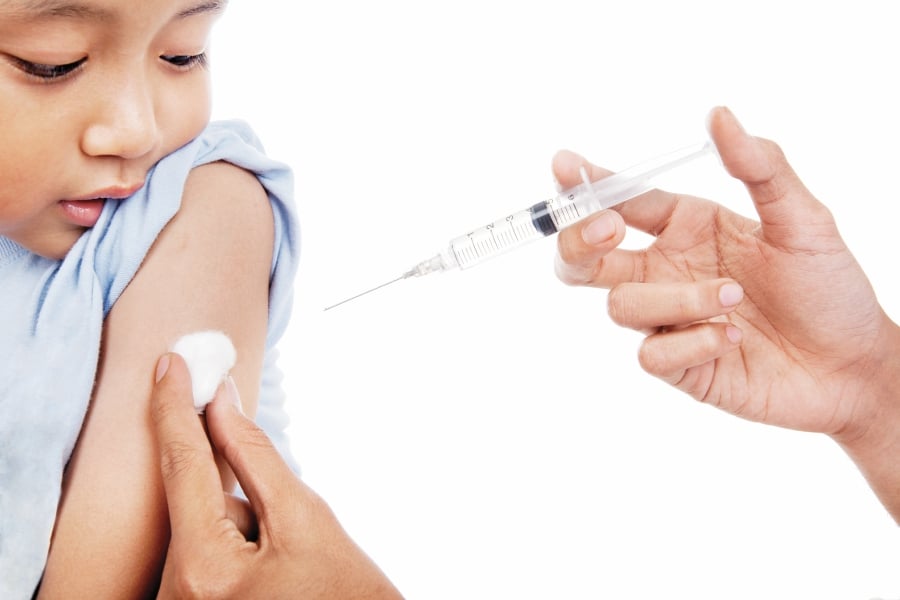Preventing meningitis

Dear Doctor,
I’m very worried about meningitis after reading about children dying from the disease. I have a 2-year-old. What preventive measures can I take to ensure she doesn’t contract the disease and what are the early signs that she may be infected?
Sarah Tan, PJ
ANSWER
You are rightly concerned about the dangers of meningitis in your 2-year-old. It not only can cause death but also long-term disabilities in survivors.
Meningitis is an inflammation of the lining surrounding the brain and spinal cord. In adults and older children they may complain of fever with headache, neck pain, photophobia and vomiting. However in younger children, they may not be able to communicate such specific symptoms. They usually start with a fever and may exhibit signs of irritability or lethargy, poor appetite, vomiting and are generally ill-looking.
The first preventive step is to ensure that your child’s immunisation records are up to date. Since the introduction of the Hemophilus B influenza (Hib) vaccine, the incidence of Hib meningitis has reduced dramatically.
Hib Vaccination is included in the Ministry of Health’s mandatory vaccines. There are also other optional vaccinations to be considered like pneumococcal and meningococcal vaccinations which are protective for meningitis caused by these group of bacteria.
Foods that pose a choking risk
Dear Doctor,
My 3-year-old eats on her own and is very independent during meals. I am however very concerned about any potential choking incidents. Are there certain foods I should not give her or do I need to prepare her meals in a particular way to avoid such accidents? Please advise.
Roziah Ahmad, Wangsa Maju

ANSWER
Congratulations on training your toddler to eat independently. Definitely the choice of food and its characteristics are important to consider when preparing her meals.
Food which is hard, cylindrical or circular in shape can wedge itself and completely occlude a child’s airway.
Food items like fish balls, sausages, jelly cubes, hard candy, whole nuts, grapes, fruits with medium-sized seeds like cherries, longan and lychee also pose a risk of choking. Your method of preparation will help to reduce this hazard.
Try to cut the fishballs and sausages into short 2.5cm strips rather than round slices. Fruits should be seeded and cut length-wise before serving. Nuts can be crushed and mixed with other food items. Debone fish and chicken and meat for your child’s meals.
Toddlers are generally a playful lot, easily distracted, like to laugh and run around while they are eating. This behaviour further increases the potential for choking no matter how cautiously you have prepared their food. Have an adult supervise your daughter during meal times and ensure she chews her food properly before swallowing. It also helps if an adult in the house has basic first aid knowledge on choking for infants and children.
Answers provided by Dr Kerry Vivienne Jayaprakasam
consultant paediatrician, Pantai Hospital Kuala Lumpur.
Child Friendly
Do you have a question on parenting or concerns about your child’s health and wellness? Write to us at meera@mediaprima.com.my and our experienced paediatricians will respond to your queries. All questions must be accompanied by the sender’s full name and address.















